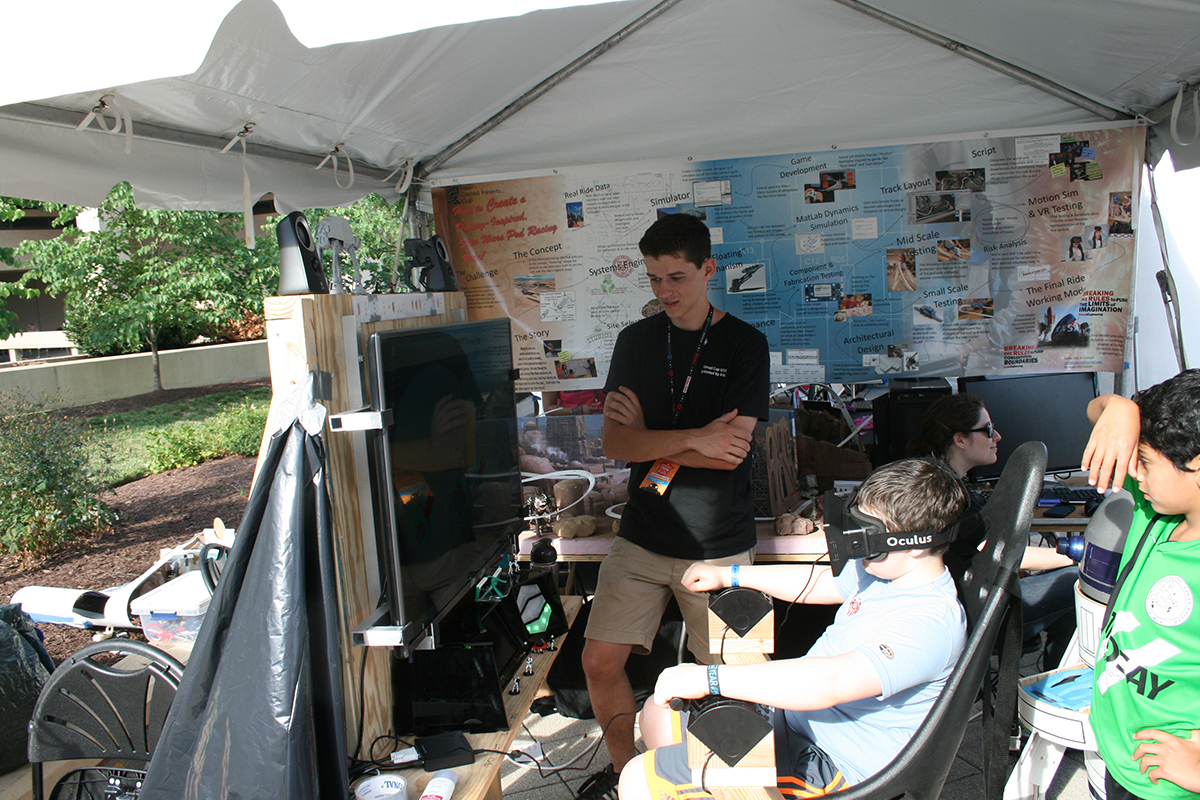Force is strong in student-designed 'Star Wars' ride
By Anne Ju


A virtual reality theme park ride and video game created by Cornell engineering students places the gamer on the “Star Wars” planet of Tatooine, dodging obstacles and picking up points in a pod racer.
Developing the ride and game was also a way for the students to learn systems engineering principles, from designing to testing to debugging to redesigning.
The Disney-inspired, “Star Wars”-themed pod racer ride, which employs an Oculus Rift for a gaming interface, was the yearlong project of the Intel-Cornell Cup team. The team includes students from systems, electrical and mechanical engineering, computer science and others.
The team’s activities culminated in the Intel-Cornell Cup, a competition held at NASA Kennedy Space Center in early May. The Cornell students’ project continues, thanks to a seated motion platform loaned from Moog that will enable them to develop a way to actually (not just virtually) ride the ride.

The Intel-Cornell Cup debuted in 2012 as a college-level design competition in which student teams invent applications of embedded technology (i.e., what makes a smartphone smart), while gaining professional design skills. This year, Worcester Polytechnic Institute took home first prize for a search-and-rescue robotic rover.
Traditionally, Cornell students don’t compete, but instead act as hosts of the event and develop projects that assist fellow students to solve technically challenging problems. This year’s project was the pod racer ride, and “it really is a fantastic example of how to conduct proper performance and validation testing throughout the design process,” said David R. Schneider, senior lecturer in systems engineering and the team’s faculty leader.
The Cornell mechanical engineering students, with help from architecture students, also created a physical model of the roller coaster that appears in the game. A life-size, student-designed R2D2 robot from the “Star Wars” movies also made the trip.
R2D2, now resting quietly in the basement of Carpenter Hall, is the students’ “lab assistant,” said Kyler Ruvane ’18, a member of the computer science Intel-Cornell Cup team. Completely autonomous, R2 is controlled by pathfinding algorithms written by the CS students, and he’s also a mobile toolkit.
In June, the Cornell students also took their pod racer experience to the National Maker Faire in Washington, D.C., where adults and children lined up to try out the game, Ruvane said.
Schneider said the most important part of the project is giving the students systems engineering practice. Everything from the group work, to troubleshooting, to constantly evolving design and performance testing are part of the experience.
“The real-world nature of the project really helped the students take their work to the next level,” Schneider said.
Media Contact
Get Cornell news delivered right to your inbox.
Subscribe